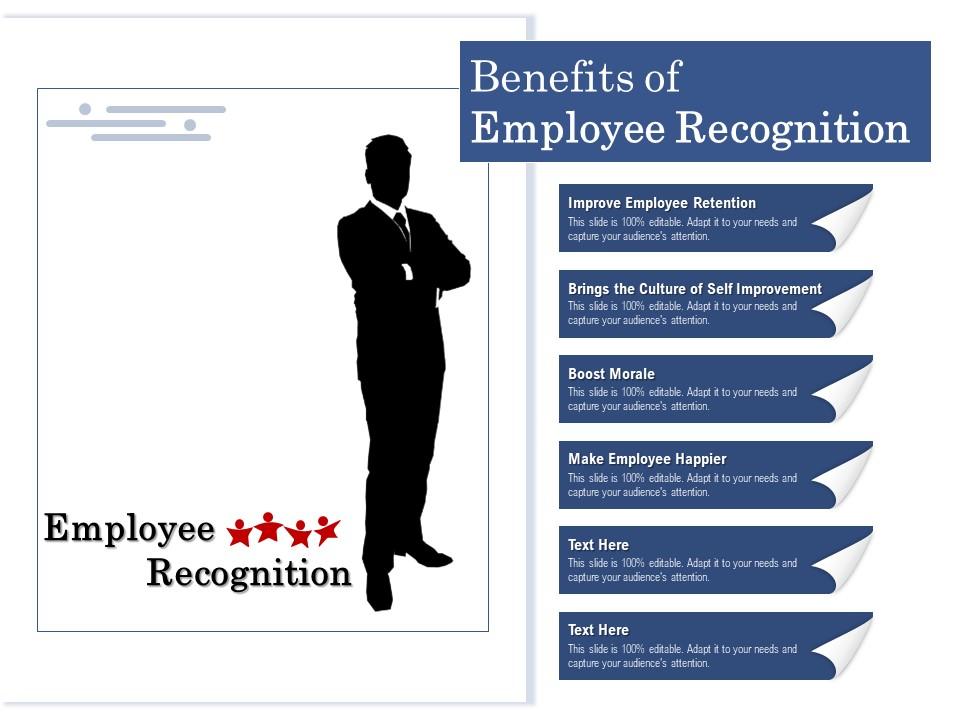In today’s competitive business world, companies are becoming more aware of how important employee appreciation is as a tool for success. Employee recognition programs do more than just say thank you.
They build a culture of appreciation and make the workplace a better place to be. In this blog post, we’ll talk about the great things that employee recognition does for businesses and why it should be a top goal to set up recognition programs.
Table of Contents
Increased Employee Motivation and Engagement
Employee recognition is a strong motivator that pushes people to do their best in their jobs. When workers feel like their work is valued and appreciated, they become more committed to their jobs.
Recognition programs give people a way to feel validated that they can see and feel. This gives them a sense of pride and success and makes them want to do their best work.
Improved Employee Morale and Satisfaction
Recognition programs, along with the use of an employee recognition tool, directly affect how happy and motivated employees are at work.
When workers are recognized often and meaningfully for their work using the employee recognition tool, they feel appreciated and happy.
This emotional link between recognition and job satisfaction makes people feel better about their jobs, leading to less employee turnover and more loyalty.
The employee recognition tool streamlines the process of acknowledging and rewarding employees, making cultivating a culture of appreciation and motivation in the workplace easier.
Enhanced Productivity and Performance
When workers are appreciated, through methods like awards plaques, they are more likely to push themselves and try to do their best. When people feel like they are important, they are more likely to go above and beyond their job duties.
This leads to more work and better performance. Recognition programs set up a positive feedback loop that reinforces good behavior and pushes the whole organization to keep getting better.
Strengthened Employee Relationships and Team Dynamics
Employee appreciation helps people get along and work together. When coworkers recognize and value each other’s work, it makes relationships stronger and creates a helpful work environment.
Peer-to-peer award programs help people work together and feel like they belong, which makes the bonds between team members stronger.
Boosted Employee Retention
Businesses can lose money and lose productivity when a lot of their employees leave. But employees are more likely to stay with companies that show them appreciation.
When workers feel appreciated, they are more likely to feel loyal and committed to their organization. Recognition programs create a good setting at work, making employees more loyal and lowering hiring and firing costs.
The Attraction of Top Talent
Companies that put an emphasis on recognizing their employees have a competitive edge when it comes to drawing and keeping top talent.
Organizations with a good image for valuing and appreciating their employees tend to get more applicants.
By highlighting reward programs during the hiring process, companies can show that they care about the well-being and growth of their employees, which makes them more attractive to highly skilled people.
Improved Customer Service and Satisfaction
When workers are appreciated and involved, they provide better customer service. When workers feel valued and encouraged, they are more likely to go above and beyond to make sure customers are happy.
Recognition programs that highlight great customer service reinforce how important it is to give great experiences, which makes customers happy and increases their loyalty.
Innovation and Creativity
Employee reward programs help organizations be more innovative and creative. When workers are appreciated, they feel like they can think outside the box, take risks, and come up with new ideas.
When workers are recognized for their work, they are more likely to come up with new ideas and help solve problems. This leads to continuous improvement and a culture of innovation.
Positive Organizational Culture
Recognition programs help to build a good culture within an organization. They make the workplace a place where workers feel valued, respected, and cared for.
This positive attitude affects every part of the organization, including how people work together, how they talk to each other, and how happy they are overall.
A positive culture brings in and keeps talented people, increases productivity, and adds to the overall success of the organization.
Increased Employee Well-being
Recognition programs are good for the health and happiness of employees. When you feel valued and recognized at work, your stress level goes down, and your mental health gets better.
When employees feel like they fit in and are important, they are more likely to be happy at work and have a good balance between work and life.
Recognition programs that give workers options for flexibility and balancing work and life show that the company cares about their health and happiness, which leads to a healthier and happier workforce.
Conclusion
Employee recognition programs offer an array of benefits that contribute to an organization’s success. From increased motivation and engagement to improved productivity and employee satisfaction, recognition programs create a positive work environment where employees thrive.
By fostering a culture of appreciation, organizations attract and retain top talent, drive innovation, and deliver exceptional customer experiences.
The remarkable benefits of employee recognition extend beyond individual employees and positively impact the entire organization. Investing in recognition programs is an investment in the workforce and a strategic move toward achieving long-term success.












